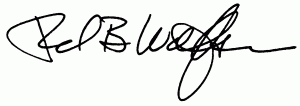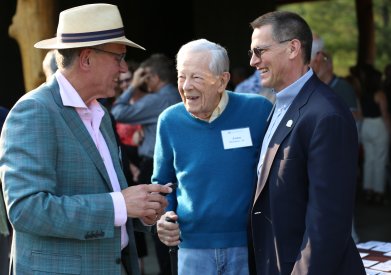Imagine a Different World Order
July 18, 2019
This is the sixth Trust Practice Challenge winner to be featured in this letter. It was one of eight outstanding submissions we are showcasing at the annual Foundation Forum in August.
Imagine working in an environment where a traditional model of hierarchical, authoritative, physician-centric management is replaced by new patterns of relating that foster collaboration, group learning, nurturing and a flattened social order on health care teams. In such a world, we would move away from a sole focus on “what and how” to start including the “who and why.” The valued skills sets are emotional intelligence, listening, empathizing, and cultivating trust and psychological safety on teams. Evidence has shown that these relational leadership practices, as they are known, enhance teamwork, engagement and improve the quality of care as well as patient and provider satisfaction.
That is the aim of a collaboration between Primary Care Progress and the Oregon Health and Science University’s Department of Family Medicine – to develop relational leaders. The Relational Leadership Institute is a three-month longitudinal leadership learning collaborative that engages an interprofessional and cross-generational group of health care professionals and trainees. The program’s four competency domains include:
- Self-management: reflection on one’s own values, behavior and collaboration styles
- Teamwork: building trust and influencing others to work cooperatively
- Coaching: the practice of facilitating the performance of others
- Advocacy: understanding one’s professional ecosystem and mobilizing stakeholders
Over 15 years ago, I participated in a leadership course conducted by Anthony Suchman, Penny Williamson and Diane Rawlins called “Leading Organizations to Health” (LOH) that had a similar approach to leadership. It transformed me both professionally and personally, but of course I am still a work in progress. I often speak about how Choosing Wisely partnerships emerged through respectful and trusting conversations. Within the ABIM Foundation, we have sought to create a flatter hierarchy and believe everyone can contribute something of value to our work. Last year, I wrote about visiting with author Parker Palmer, Founder of the Center for Courage & Renewal, who inspired much of this relational thinking.
What have I learned about building trust from this relational approach to management, both from the Relational Leadership Institute and from LOH?
- We all now work in complex systems where, by definition, no one person can know or do everything. Organizational success and the ability to innovate are therefore dependent on whether we can mobilize the skills and insights of all team members, and help them cooperate in a sustained manner.
- Colleagues and team members are not machines; they are human beings with needs, hopes, and emotions. They also have unique lines of sight we must leverage for high performance. If they don’t feel secure and valued on the team, we won’t benefit from what they have to offer.
- Eliminating hierarchies sends a message of belief in the competency and reliability of the individual – important components of trusts – and it can release the passion of the individual, promote group learning, thereby leading to a multitude of benefits for the team and organization.
- The relational approach is a strong mechanism to grow and develop trust in the organization and the relationships within.
- By leaders intentionally allowing safe spaces to be created, people can begin to gain a deeper understanding of the people they work with and strengthen collaboration, learning and innovation.
- Safe spaces also allow the authentic self to emerge – where there is no divide between who I am as person and how I must act professionally. This leads to enhanced engagement.
- Pockets of leaders using the new methods of relating to colleagues can in the short term change the culture of an entire organization
- Individuals are attracted to this new way of relating; it can create in them new ways of thinking.
- It takes courage to move away from traditional management structures to this new way of being, both professionally and personally.
Imagine that!

Daniel B. Wolfson
EVP & COO, ABIM Foundation


